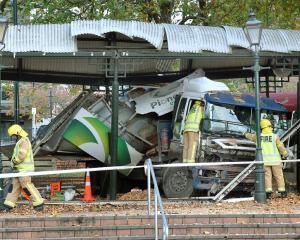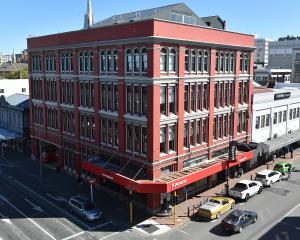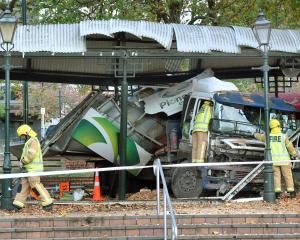Bars closing might be the price of becoming a civil society, a social service agency says, as no-shows dominated the second day of hearings on Dunedin's draft local alcohol policy (Lap).
More objections to the Lap on the basis it would push drinking into uncontrolled areas and affect businesses were made by bar and tavern owners and operators at the ongoing Dunedin City Council hearing yesterday, while several social service agencies made strong arguments for at least the proposed policy to be adopted.
Methodist Mission director Laura Black said the agency was not anti-alcohol, but was concerned when overuse of alcohol caused significant damage for individuals and those around them.
''There is a duty of care required of all of us as citizens and no-one has a right to make money from somebody else's misery.''
Restricting the availability of alcohol at the margins, as the Lap proposed, was ''most certainly'' the easiest way to reduce alcohol-related harm.
The argument drinking would be pushed into uncontrolled areas made no sense when the Octagon seemed an unsafe place to be at 4am anyway, and it was hard for a social service to have sympathy for bars closing, she said.
''These costs seem, to the Mission, to be either illusory or simply part of the price of entry to a civil society.''
WellSouth, formerly the Southern PHO, was represented by Katie Jahnke, who said many people had lost perspective of the fact alcohol was a drug.
She said research showed the problem with hazardous drinking in the South was more significant than in other areas, and the incremental approach the council was taking was the right way to make the changes across the population.
Otago University Students' Association finance officer Paul Hunt said members supported proposed restrictions on off-licence hours, but not the proposed 1am one-way door policy, 3am closing or banning shots after midnight at on-licence premises.
The proposals would discourage students from going into town at all and create a ''midnight swill'' among those who did.
Students who did not go to town would just make their own parties with cheap off-licence alcohol instead, he said.
Asked what he would do to reduce alcohol-related harm, other than set a higher price for alcohol, which was not possible in a Lap, Mr Hunt said everyone could work together on ways to get people into bars earlier, perhaps with entertainment or other activities.
The operators of taverns in residential and semi-rural areas were concerned about imposing blanket rules for their businesses.
Joanna Kidston, of Careys Bay Historic Hotel, and Sue Mackay, of the Kensington Tui Clubrooms, said their hotels were community-oriented and well-controlled.
They were concerned earlier closing and shutting outdoor areas after 11pm would force people into town, affecting their businesses, as well as creating issues in town.
Ms Kidston said her hotel was unique and had a special place at the centre of its community and relied financially on its outdoor areas and late-night functions it hosted during the summer months, which would be threatened by the proposed midnight blanket closing time.
Bar owners were seven of the 12 people who turned up out of 37 scheduled to speak to the council committee considering the policy yesterday.
Chairman Dunedin Mayor Dave Cull said the no-shows were disappointing as staff had gone to considerable trouble to verify people would be there or to leave them slots had they not responded to messages.
Having said that, the majority of those not turning up were signatories of standard forms and the committee was still receiving the more thought-out and researched submissions, he said.
''Across the board, they are proving to be very informative and constructive on all sides.''
Dunedin district licensing commissioner Colin Weatherall last night said he would return to address the committee as soon as he had cleared matters with his source on bars offering incentives in return for filling out submission forms.












